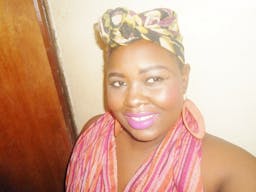LITERACY IS GIRL POWER-from a CAMEROONIAN WOMAN PERSPECTIVE
Jan 21, 2015
Story
Education and training of women was recognised as a Human Right in the Beijing Platform of Action. The Platform for Action went further to call for measures aimed at eradicating illiteracy among women and at improving women’s access to vocational training. Around the World, girls and women continue to suffer from a lack of economic opportunity, inadequate health care and education, early marriage, sexual violence and discrimination. The good news is that empowering girls and women yields undeniable returns for everyone in the community.
In writing today, I will love to celebrate the lives of two Cameroonian women who have made it in educating themselves despite the odds. In an interview I have been carrying out with women, the experiences of these two women in particular stroke me and I drew inspiration sharing and dedicating it equally at this time for the Girl’s Transform the World Digital Action Campaign. Usually in Cameroon, there is the growing rate of population due to the massive movement of people leaving the rural areas to the urban cities in order to make a living, since the urban cities seem better than the rural towns. Some girls even prefer to come and work during the day and then enrol in evening schools where they go for lessons in the evening. Kate and Lillian are examples of such people;
STORY 1
Kate like most girls left the village and came to Yaoundé to look for a means to earn a living, but her desire was to go to school. Due to the circumstances that surrounded her life, as the first child and the first girl, she had to work to sustain her family since her mother died and no money to further her studies, and the only way out in a village setting was getting married which was not her wish. While in Yaoundé she started working as a house help for a family. Kate worked for one year with them and saved some money where she enrolled into an evening school the following year and then re-scheduled her working hours. She started working during the day and in the evening, she will go to school. With God’s goodness, Kate made progress in school, got into the University, finished with her first degree and made the entrance exams into the Teacher’s Training Institute where she professionalised as a teacher. Today, as I speak, Kate has built a house of her own, sponsoring her siblings and even non-family members.
STORY 2
Lillian comes from a polygamous home and are 9 of them to her mother excluding her step brothers and sisters. Because of poverty and financial hardship, two of her sisters got into marriage out of circumstances. She started a business which really didn’t flourish well and later moved to Yaoundé to see how she could go about it. While in Yaoundé, she worked for about two years, saved money and enrolled into an evening school. Again she worked during the day and went to school in the evening. Recording progress, she got into the university and later professionalised as an administrator. Today, she is married, an administrator, she has sponsored two of her siblings abroad and a breadwinner in her home.
Girls’ literacy greatly reveals how information is power; education to me is a feminist issue which I refer to as “learning that enables women to take control over their lives” and looks at issues in women’s everyday lives. When a girl begins with a book and a pen (which is learning material), it symbolises a ‘larger part of learning which access to information is’.
By focusing on girls and women, innovative businesses and Organisations can spur economic progress, expand markets and improve health and education outcomes for everyone. I quote “Kathy Calvin”, an American female Activist who says “A healthy, educated and empowered girl has the unique potential to break the cycle of poverty. She is likely to have fewer and healthier children and earn higher wages to support her family and drive economic growth. All of this promotes more productive and stable communities and countries-enhancing global prosperity and security and benefitting us all”.
Literacy indeed is girl power. Think of the woman who does a trade to educate herself and end up bettering her world, -think of the woman who works as a house help to educate herself and ends up bettering her world. The kind of institution doesn’t matter, the power of literacy starts with just one step into the classroom, it begins with just a book and a pen which changes a life, makes a difference and does the miracle for a girl/for a woman, for a generation and then the world.




